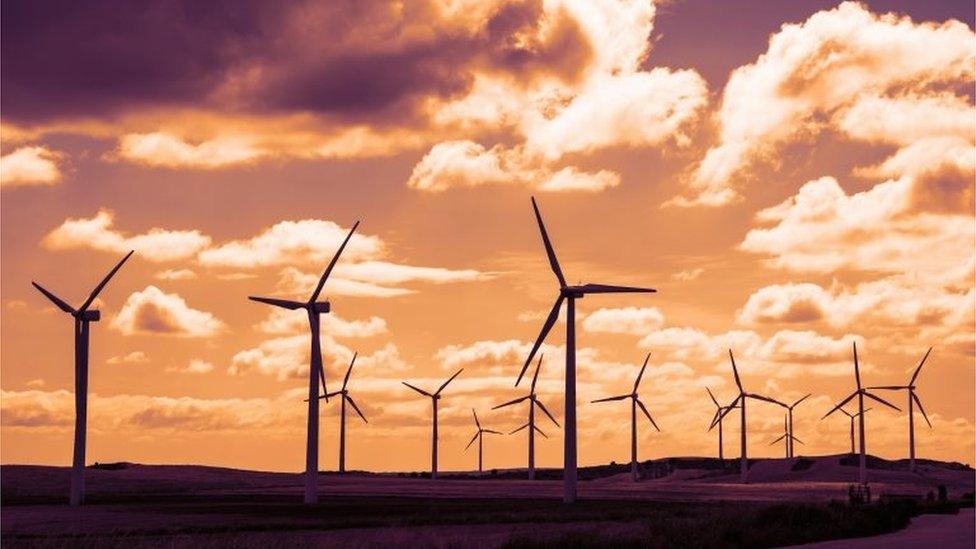Renewable energy: £1.7bn plan for Swansea led by Bridgend's DST
- Published
The £1.7bn third proposal to built a tidal lagoon in Swansea bay
A Bridgend company is leading plans to build a £1.7bn renewable energy project on Swansea's waterfront.
The Blue Eden scheme includes a tidal lagoon and floating solar panels.
This is the third proposal to develop a tidal lagoon in Swansea Bay, and would include a battery factory and a data centre run on renewable energy.
No tax payers' money would be needed, according to the consortium, but consent will be required from the Welsh government for the energy projects.
The international consortium is led by DST Innovations, which makes industrial batteries in the United States.
Blue Eden would be developed in three phases over twelve years, starting in 2023 with 1,000 jobs making high tech batteries for energy storage.
That would be followed by construction of a floating solar energy farm in the Queens Dock area and large data centre powered by an uninterruptable source of renewable energy, which would be a UK first.
The heat generated by the computer servers in the centre would then heat 5,000 new eco-homes along the waterfront.
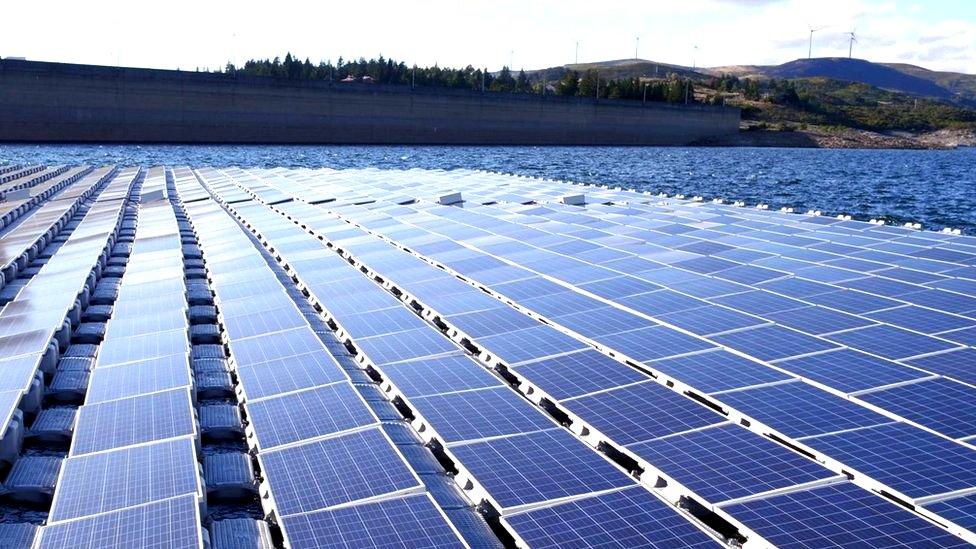
Plans would include floating solar panels
There would also be an oceanic and climate change research centre and 150 floating houses, as seen in the Netherlands.
The project hopes to support 16,000 jobs across the Swansea Bay city region in the long term.
Swansea council's leader Rob Stewart said: "I'm delighted that an international consortium led by a Welsh company has developed our Dragon Energy Island vision into a ground-breaking project that delivers so many benefits and builds on the council's ambition to become a net zero city by 2050.
"Cooperation and support will be required, trying to make sure the permissions and the consents that are needed are in place."
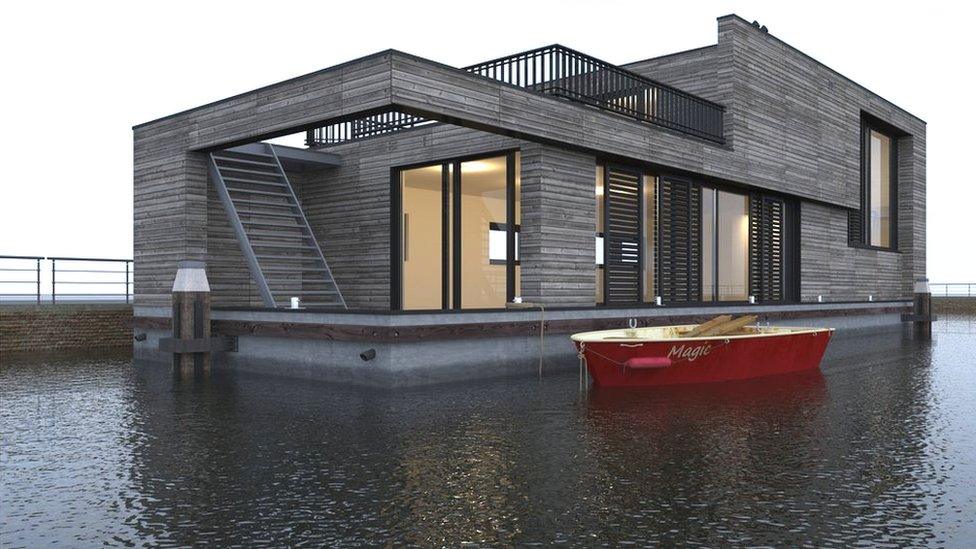
Floating eco-homes like this one could be seen on Swansea's waterfront if the plans go ahead
Mr Stewart explained that Blue Eden had signed a memorandum of understanding with Associated British Ports and were in discussions with them about acquiring land.
The projected energy output of the tidal lagoon and floating solar panels are just under 320 megawatts each, which means Welsh government would be responsible for giving consent to these elements.
Swansea council supports the project but Mr Stewart said no public money would be given to it: "Blue Eden will put Swansea and Wales at the cutting-edge of global renewable energy innovation, helping create thousands of well-paid jobs, significantly cut our carbon footprint and further raise Swansea's profile across the world as a place to invest."
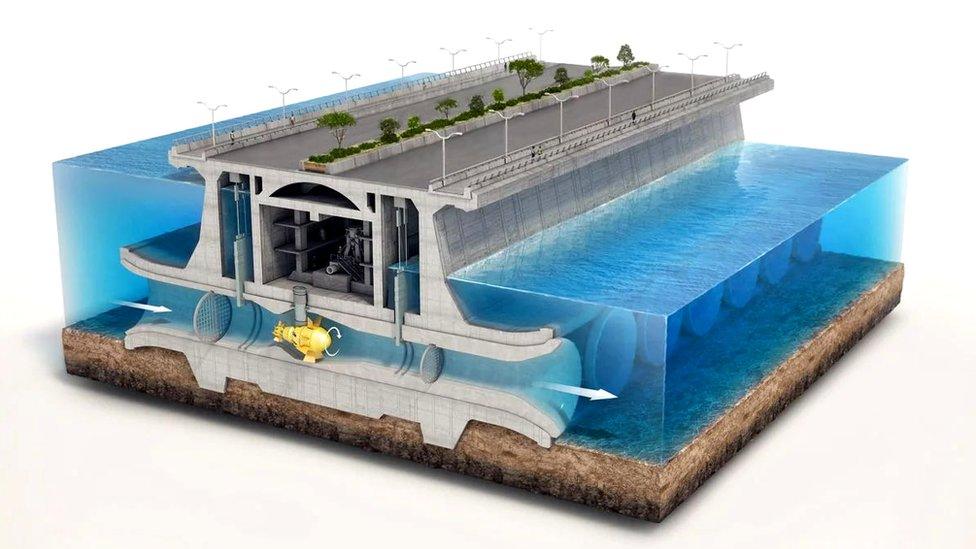
An image by DST of the proposed tidal lagoon including turbines
DST's co-founder and chief executive Tony Miles said: "Blue Eden is an opportunity to create a template for the world to follow - utilising renewable energy and maximising new technologies and thinking to develop not only a place to live and work, but also to thrive."
The company added it did not any need money from either the UK or Welsh government, or a guaranteed price for the electricity, since all the electricity produced will be used within the Blue Eden development.
Mr Miles said he hoped to start building work in two years' time: "We'd like to break ground in a couple of years, once we've finalised all the studies, and some fairly major investors have injected a lot of capital into this already.
"We're hoping without too many bad statistics for future sea rises and weather forecasts, it has 120 years of life before somebody comes up with a new version."


The latest project for Swansea Bay differs widely from previous attempts to generate renewable energy there.
In contrast this is entirely privately funded, does not feed electricity into the National Grid and is different in the way it develops two industries - batteries for the renewable sector and a data centre, saving time and producing an income while the lengthy planning process for the lagoon takes place.
However, it is still early days for the project. The battery production is still at the pilot stage and involves using, but not burning, anthracite coal - a sodium solution. DST said it would be less affected by extreme weather than batteries made from lithium.
Blue Eden's plans also depend on customers for the data centre and the company says it has already been contacted by people who are interested.
The biggest hurdles to the project are permissions from four public sector organisations.
It needs a license from the Crown Estate to construct the lagoon wall on the sea bed, planning permission for the battery factory, data centre and housing from Swansea Council, permission to generate electricity from Welsh government and a license from Natural Resources Wales.
The first proposals for a tidal lagoon in Swansea Bay faced detailed criticism from groups that were concerned about its impact on ecology and fish migration from the sea into rivers to spawn.
The lagoon would produce 320 megawatts of electricity which would power more than 5,000 homes on site, a data centre, an oceanographic and climate change research centre and battery manufacturing plant.
That size means that it is not big enough to need permission from the UK government.
- Published29 July 2021
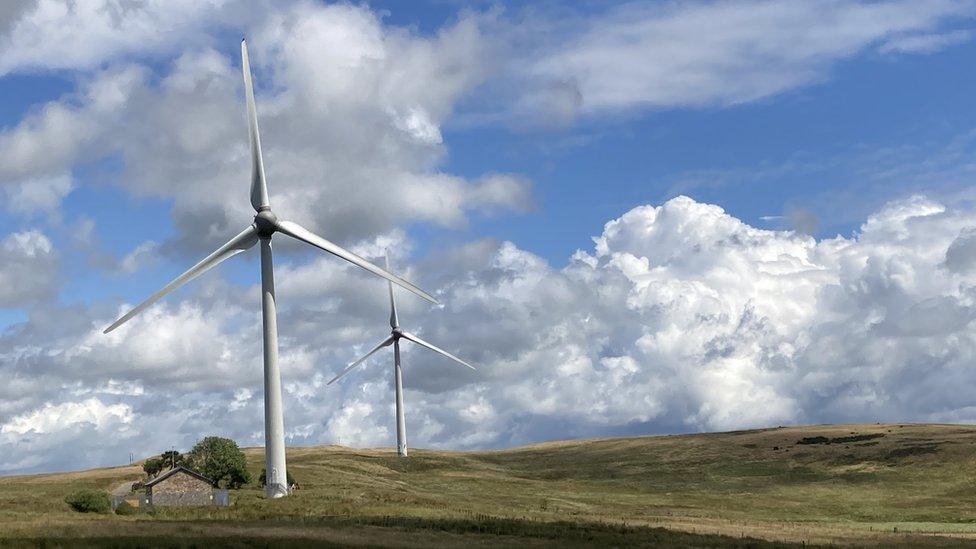
- Published24 June 2021
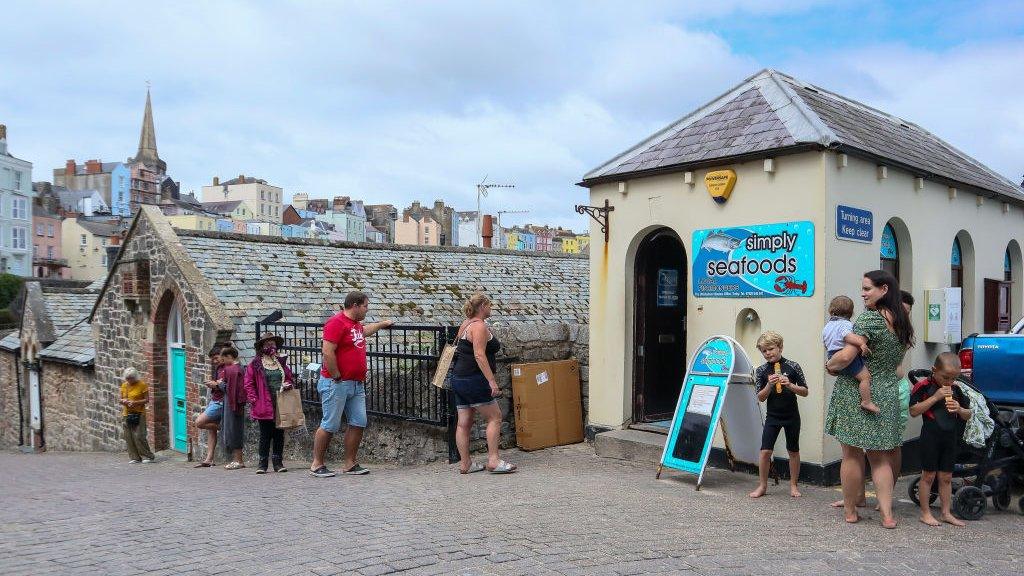
- Published18 October 2021
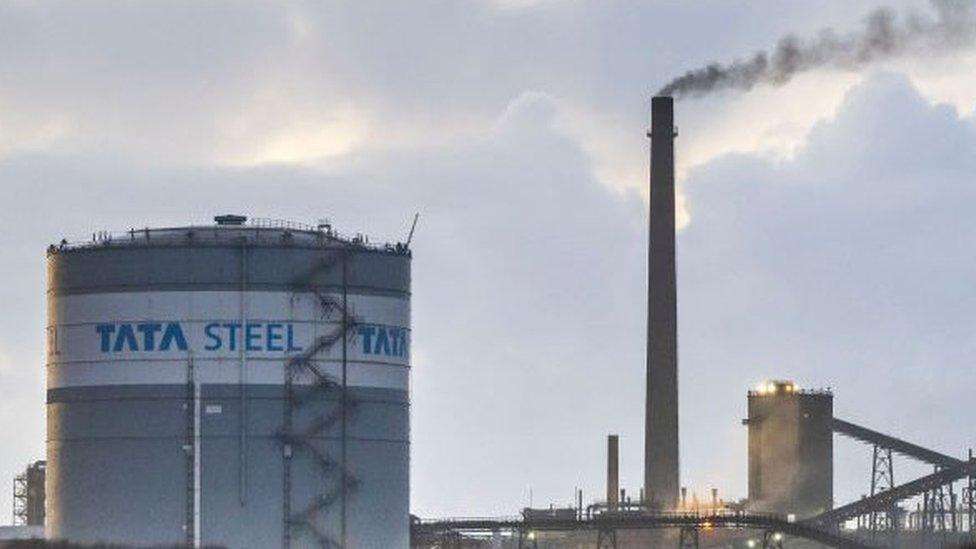
- Published19 October 2021

- Published4 October 2021
